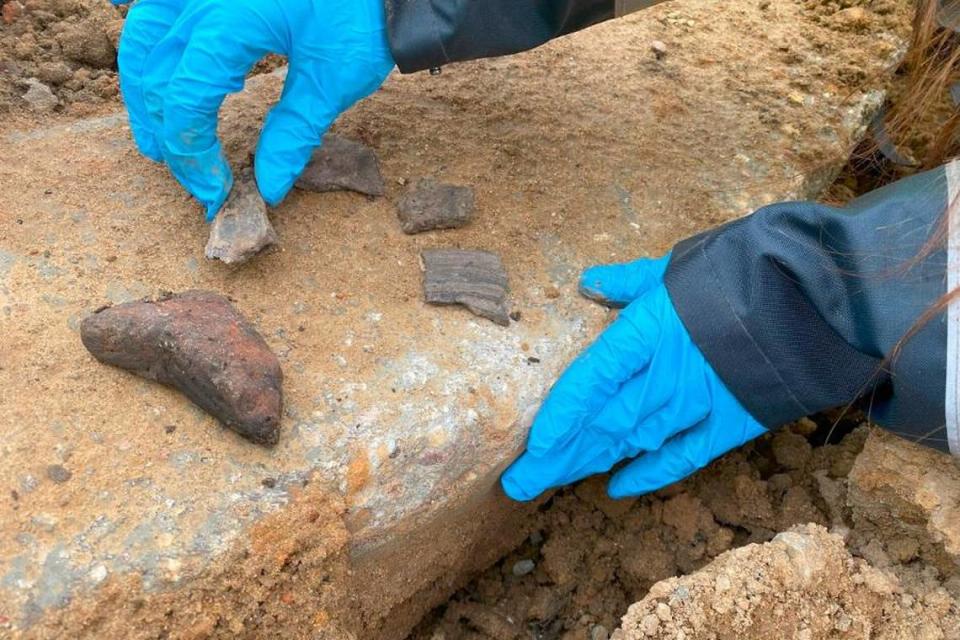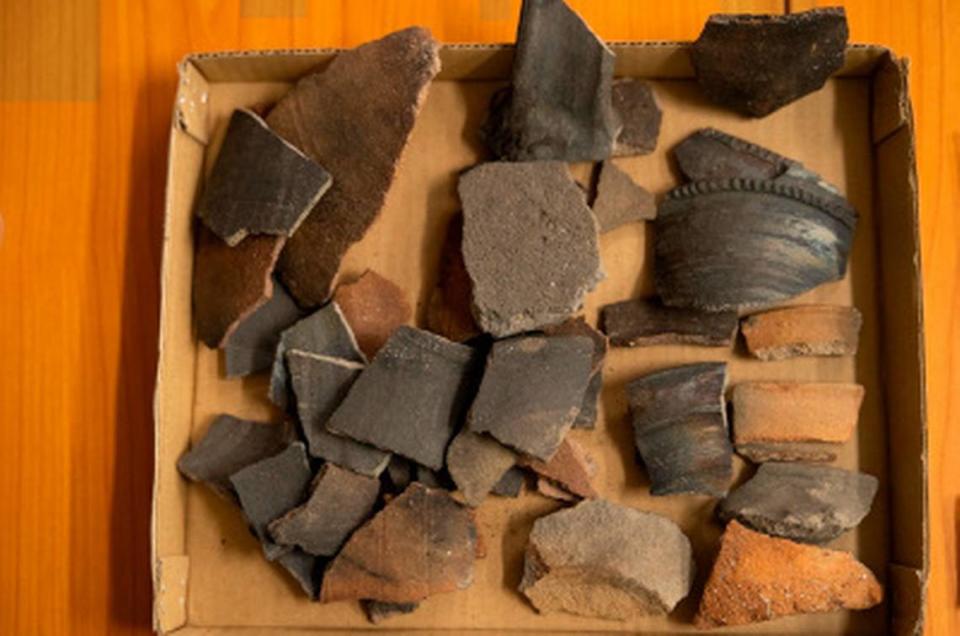Underground builders find pottery pieces in Poland — and discover 600-year-old garbage
In the city of Warsaw, a group of builders worked to clear dirt for the construction of a station for the city’s underground transportation system.
Part of the M2 line, the workers were starting work in the soil when they saw darker patches of earth mixed in the rest of the light brown sediment.
They looked closer, and pieces of pottery emerged from the ground, transportation officials said in an April 24 news release from the City of Warsaw.
The shards of clay were only the beginning.
Archaeologists from the State Archaeological Museum in Warsaw excavated the area and found many pottery fragments, belonging to multiple types of pottery, according to the release.

Uncover more archaeological finds
What are we learning about the past? Here are three of our most eye-catching archaeology stories from the past week.
→ Farmer loses plow part in Polish field — then finds historic artifact during search
→Divers remove ancient Roman cargo from shipwreck — and find unique carvings. See them
→ Metal detectorists find ancient portrait in Danish field. See the 'legend' it depicts
Some of the pieces were considered ordinary, something likely made by a local potter to be used in the kitchen, and were relatively plain, officials said.
Other pieces, however, were decorated with intricate stripes and grooves, likely used on special occasions like holidays and when guests were visiting, according to the release.
The pottery fragments date back to between the 14th and mid-16th century, the archaeologists said, about 600 years ago.
The pottery wasn’t alone, as archaeologist also uncovered the bones of domestic animals and a stone used for sharpening knives and sickles in the soil, officials said.
How did they all end up in the same place? They were thrown out in the garbage.

Two individual garbage pits were excavated, along with the remnants of clay slabs that would have once held a settlement cottage, the archaeologists said.
The second pit was dated specifically to the 15th century during the reign of King Władysław Jagiełło, a leader in eastern Europe who joined the kingdoms of Lithuania and Poland together, according to the release and Britannica.
The people at the time would have then dug pits to dump their food scraps and broken bowls, including some kitchen pottery that still has the remains of historic dishes that were eaten centuries ago, according to the release.
The archaeologists said the find will lead to further discoveries once the contents of the bowls are analyzed, so they can soon confidently say what the people of the late Middle Ages ate at home.
Larger fragments of the pottery were also found to match one another, meaning some of the kitchen pieces will be able to be reconstructed, and are expected to go on display at the State Archaeological Museum, officials said.
Google Translate was used to translate the news release from Miasto Warszawa, the City of Warsaw.
Road workers find stone and pottery — and reveal ancient settlements in Poland
Metal detectorist finds 6,000-year-old artifact in forest. It may have been holy gift
Road construction workers discover historic fortress in Poland. Check out the find
Farmer loses plow part in Polish field — then finds historic artifact during search

